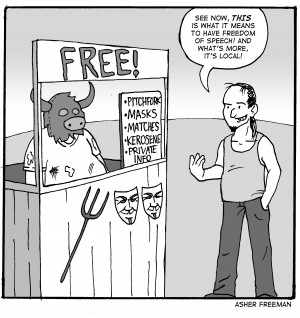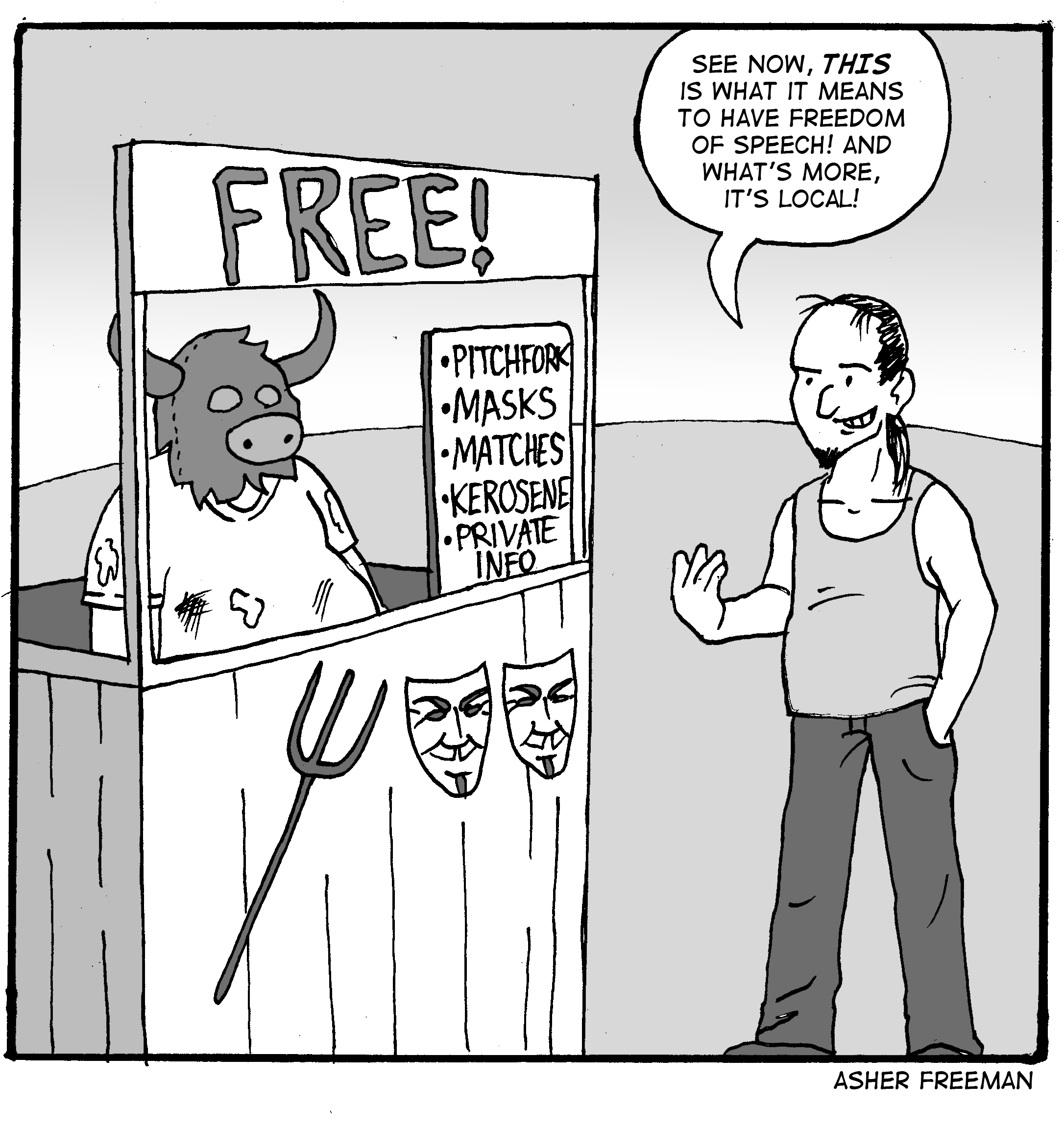 Hiding behind anonymity is a common practice today. From sources in news stories to social media, knowing the name behind a comment or quote is well on its way to becoming a rarity. What this means for social norms is yet to be determined, but social media apps like Yik Yak indicate it could lead our society down a disturbing path without regard for those around us.
Hiding behind anonymity is a common practice today. From sources in news stories to social media, knowing the name behind a comment or quote is well on its way to becoming a rarity. What this means for social norms is yet to be determined, but social media apps like Yik Yak indicate it could lead our society down a disturbing path without regard for those around us.
Yik Yak is possibly the most alarming of today’s social media apps. If you are receiving a notification on your device, it means the sender of the comment is within a 1.5-mile radius. People sending and receiving comments could be sitting beside each other and never know.
At its surface, it seems like an amazing step forward in technology. Anonymous media outlets are all about connecting with people, making “friends” or gaining “followers” to grow social circles. But when people in our circles become violent or offensive, we usually have the option to unfriend them or unfollow. With Yik Yak, you have to physically escape the 1.5-mile radius or the comments keep coming and sometimes with dangerous consequences.
For two days this week in Manhattan Beach, Calif., a Mira Costa High School had to shut down its campus because of threats posted on the app that vaguely threatened student safety.
One message on the app read “If you go to Costa, you should watch out very closely at school today,” according to an article in the L.A. Times.
After police did a scan of the building and declared the building safe to enter after the first threat, this message followed: “nice try Costa, today was just a drill.”
In response to this, district officials blocked the app’s usage with the school’s Wi-Fi.
This anonymous bulletin board that now plays host to fear mongers and cyber bullies was never intended for high school students. According an interview with Yik Yak co-founder Brooks Buffington, it was supposed to be for mature college audiences that could responsibly use the service.
“We were naïve,” Buffington said. “We designed the app primarily for college students. Using the app the way we intended it to be used requires a certain amount of maturity and responsibility. We were idealistic about who possessed that.”
Their naivety, however, is questionable. Long before Yik Yak hit the scene, Facebook too aspired to be an application only for college students and failed. However, even if Yik Yak did manage to keep their user pool to college students, there is no assurance the postings would improve.
According to an article in the Des Moines Register, a Drake University student was accused of using Yik Yak to threaten the campus with a shooting. The student’s post read: “Columbine will look like child’s play compared to what I’m going to do,” according to a criminal complaint.”
But it isn’t just national tragedy that finds its way onto Yik Yak’s stream of anonymous comments.
After the passing of a Baylor student this week, some students took the social media service to mourn and other to make inappropriate assumptions about his death. The vile nature of the posts do not warrant repeating and the Yik Yak service, which only holds on to comments for hours at a time, helps anonymous cowards stay hidden.
This portrait of Yik Yak is not complete. Yes, anonymous Web surfing can bring out the worst in people, but it can also challenge them to resist the trend.
And it can start at one college campus. It can start at Baylor.
Do not upvote, the equivalent of liking a comment, on Yik Yak if it is in poor taste and is a poor representation of a desirable community.
These anonymous platforms are not likely to go away, but the negative tone they convey can disappear if enough people care to make it happen.






